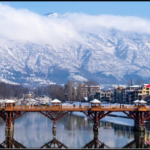
In 2011, the member states of UNESCO proclaimed February 13 as World Radio Day which later on was adopted by the United Nations General Assembly. 13 February 2022 will be the 11th anniversary of World Radio Day. Radio continues to be far-reaching and therefore the most resilient mode of communication even in the age of the internet, radio is in a position to achieve remote areas where other communications cannot reach. According to the United Nations, World Radio Day celebrates radio as an important part of humanity’s history. In times of crisis, a radio played a key role in providing information to the human population in remote areas and radio had adapted itself over the years. Radio is a great platform for voices to speak out, also radio shapes society’s experience of diversity.
World Radio Day 2022
- Like every year, 13 February 2022 will be celebrated as World Radio Day, and this can be the 11th anniversary of World Radio Day.
- Every year there is a different theme for World Radio Day, this year the theme will be “Radio and Trust’’.
Like each year UNESCO organizes different types of activities with various broadcasters and communities everywhere in the world. They also discuss the future development of radio and spread awareness about the benefits of radiofrequency. The activities and information of the 2022 edition of World Radio Day will soon be available on UNESCO’s World Radio Day website.
History of World Radio Day
In 1985, Italian inventor Guglielmo Marconi was the first person to send and receive a telegram over the first radio signal. In 1939, the FM radio made its debut. In 1994 broadcasting over radio went digital as radio streaming started via the internet. The first internet-only 24 hours radio station also started after digital broadcasting. On September 20, 2010, Spain proposed a World Radio day to UNESCO. In 2011, February 13 was proclaimed as World Radio Day at the 36th session of UNESCO’s General Conference.
History of radio broadcast in India
- In 1923, radio broadcasts started with two private stations; 1- Radio Club of Bombay and Calcutta Radio Club. In 1930, both the stations of the Indian Broadcast Company in Bombay and Calcutta went bankrupt and were liquidated. Indian State Broadcasting Service was later started on an experimental basis under the Department of Industries and Labour.
- On June 16, 1938, The All India Radio Madras station was inaugurated by C. Rajagopalachari. On January 19, 1936, the first bulletin was broadcasted. The Indian State Broadcasting Service became All India Radio on June 8, 1936.
- On July 20, 1952, the first National Programme of Music was broadcasted by All India Radio. On October 3, 1957, Vividh Bharti Services started. On July 23, 1977, the first-ever FM service was started by Madras.
Benefits of Radio
Radio is that the cheapest mode of communication, even an electric supply is not needed for a radio if it works on battery. Radio reaches a huge audience, and also reaches remote areas where no other mode of communication can reach. Radio helps in providing information in times of crisis such as earthquakes or the latest in the case of covid-19, radio helps governments to reach people in remote areas and inform and spread awareness about the disease. Radio allows messages to be edited, altered, and localized to each audience. Radio, unlike other modes of communication, is flexible and immediate, the information can be spread quickly via radio. Also, radio provides a powerful call to action and response from the audience in form of calls, etc which helps broadcasters and even the advertisers.
Conclusion
World Radio Day is celebrated every year on 13 February. In 2011, UNESCO declared 13 February as World Radio Day, and next year the States of the United Nations also adopted 13 February as World Radio Day. World Radio Day was proposed by Spain in 2010 in the 36th session of the general conference of UNESCO. World Radio Day is celebrated to spread awareness and information about radio to the world. Every year UNESCO organizes different activities together with various broadcasters.



